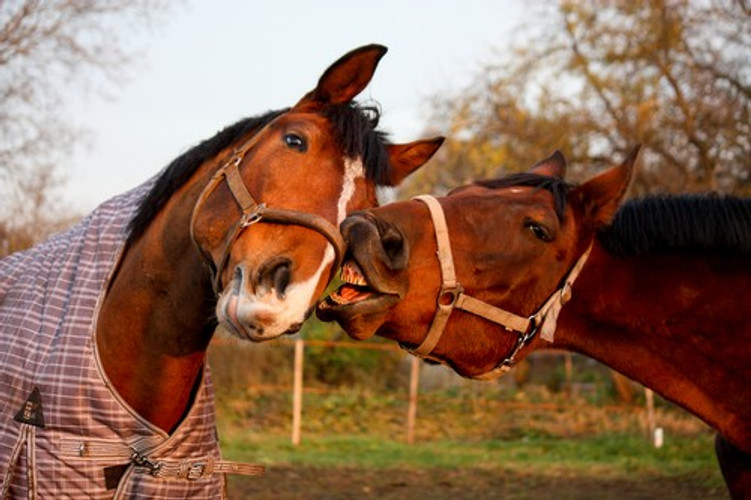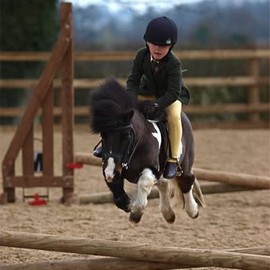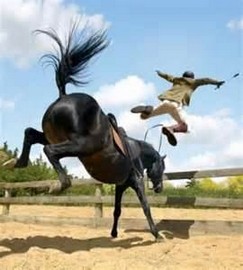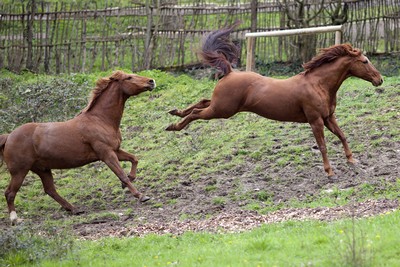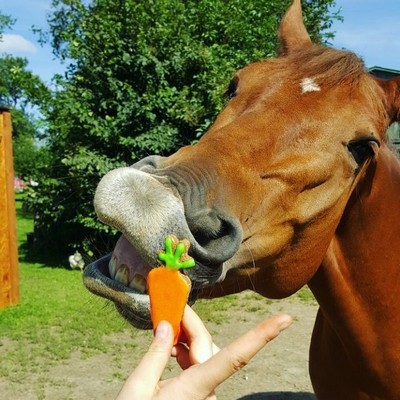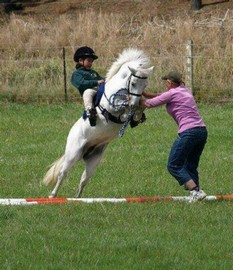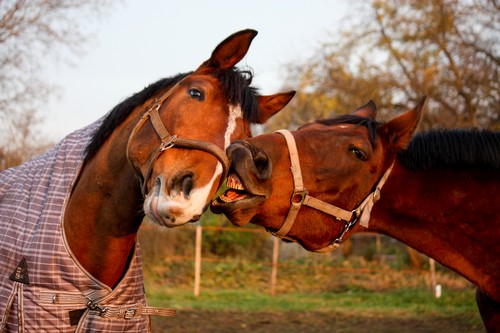How do I Manage a Nervous Horse
Posted by Russell Gibbons on 17th Apr 2018
After some research, I found 7 simple things to consider when dealing with a nervous horse!
I remember when I would ride a pony on my uncle’s property when I was very young.
Every time I got on this pony, it would bolt for the open gate and leave me to hang-on for dear life and contemplate what would happen if I jumped off; or if I stayed on; how long would it be before my mum and dad would find me in the out-back of the Australian Bush. And then, maybe I would be lost forever and it would just be myself and this wild pony growing up in the bush together and I would turn into a wild stallion????
Then it would stop abruptly, and all my thoughts would disappear as I invariably flew threw the air and in-fact be the only one of us that actually went through the gate!!!
It would stop at the gate…. I would go through it…… and it would turn and promptly trot home without me and I would meander back whilst everyone had a giggle to themselves…..
My Dad would say (with his tongue in his cheek), “what happened mate?” and I would reply every so wittingly…… “you saw me….. I fell off…… Again!”
To that he would say, “that pony seems nervous around you son”.
But I couldn’t understand why this pony was so nervous around me…….
I still have dreams to this day about it. In-fact, they are pleasant thoughts because it was a fun tussle between myself and that pony….. and it won in the end.
A part of me respects that…….
But now being a mature person, I look back and think it wasn’t the horse, it was me! I was nervous which in-turn, made the pony nervous…..
So with this in mind I thought I would do a bit of research and find out what are some of the causes, and remedies, of a nervous or anxious horse!
So my own kids don’t have the same issue.
This is what I found out.
1. You, the rider, is nervous:
We know from scientific studies that horses can sense our feelings. ( Read here to find out more details about this).
So understanding this, a horse will sense if you are nervous or confident. If you are nervous or anxious, they can, and
will, pick up on this….. which can then lead to it feeling a similar emotion and as such, reacting such a way.
So confidence is the key in this regard.
2. Understand the nature of the animal which it is!
By this, I mean, a horse is an animal which has certain built in reactions which will determine it’s survival in the wild.
Consider this for a moment, a horse is a natural prey animal. This means that it feels like it is a source of food to other predators in the wild!
As such, it has a built in fight and flight reaction which will save it’s life.
Hence, it will react without thinking if it feels threatened or is startled! It’s first reaction is to flight…….. with it’s second one being fight…….
So when it spooks or takes off without warning, that’s it’s natural reaction…..
Training can help with this…. Which brings us to our next point!
3. Your horse needs more training:
If horses are not sure what they are supposed to do, or don’t understand their “job”, they can become very nervous.
Simple solution to this is to train them more.
Further to this, ensure you implement certain routines when you are training so that they get triggers if they do spook and can calm down quickly.
There are many ways to do this. One way, is to use Horse Treats during training as a reward.
If they know they will get a HorseTraining Treat for behaving well, this will focus them on the reward in times of stress and can calm a nervous situation.
Of course, there are many ways to train a horse and using professionals as well as your own knowledge and routine implementations will all help to keep your horse from becoming overly anxious and nervous.
4. Your Pony needs more exercise.
Horses are naturally designed to move. As such, they get agitated if they can’t stretch their legs out on a regular basis.
If they are stabled for too long a period, or lead a sedentary lifestyle by being in a small paddock or stall, they are likely to become anxious simply because of the build-up of energy.
If their diet is then one which is high in energy, this will compound the problem……
So when they are saddled up it’s little wonder why they take off, or behave in an anxious manner, if they haven’t had regular exercise.
Simply exercise them more and train them at the same time to stimulate their mind as well as burn their energy off and they will become calm.
5. The diet is incorrect:
Diets differ for differing circumstance. For instance, a horse which is doing a regular activity which requires a lot of energy will need to be fed a high energy diet.
If the horse is not in regular exercise mode, a high energy diet may make them nervous, or appear anxious, because of excess energy build up and their body wants to burn off.
Of course, diet can be specific to age, health levels, and even environmental conditions too (like winter and summer).
6.Pain…..
Like us, horses don’t enjoy pain….. Lets face it, no one really does.
So if your pony is acting nervous or anxious, perhaps it is worth checking to ensure that they are not injured or ill in some way?
I could imagine, if you were a horse and had an injury, nothing could be worse than having to carry someone on your back!!!
So remember to check for injury or illness.
Remember, the tack you use can also be a source of pain and aggravation.
If it doesn’t fit properly there could be some rubbing which is hurting your pony, or perhaps there is a defect due to wear and tear which is sticking into them or causing some sort of discomfort?
So don’t rule that out.
Of course, horses have a great memory, so if they have been in pain because of tack in the past, it’s natural that they get anxious when they see you approaching with a saddle etc… in your arms…..
If this is the case, be gentle and show them how comfortable it is now……
7. They are looking for their friends.
Horses are social things. They are herd animals.
This means that they feel happiest, and safest, when they are around a group which they know well!
So, when they are removed from this group, they can become nervous and act anxiously.
It’s difficult to deal with this type of nerves. Only training and time and gentle persuasion can help with this one…… but the more practice, the better they get.
Likewise, certain breeds tend to get more connected to their herd than others…… so the breed will also be part of the reason why the act like they do!
Bottom line is this, horses are a wonderful, beautiful creature whom are born with emotions and fears and instincts just like we are.
Hence, understanding why a nervous horse is indeed nervous, will really help with the amount of quality time you get to spend with them…… and after all, this is what it’s all about…..
quality time with your pony!
Hope this helps?
All the best from the team @ Huds and Toke ™ . The original Australian Horse Treat Business.
#hudsandtokefamily
@hudsandtoke
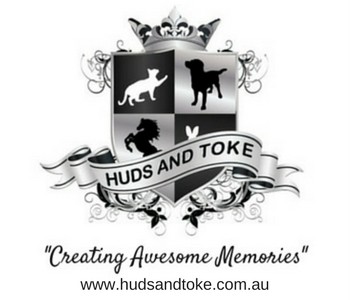
PS: Please feel free to post a review on one of these review sites…….we appreciate the thought and it all helps. Thanks.

